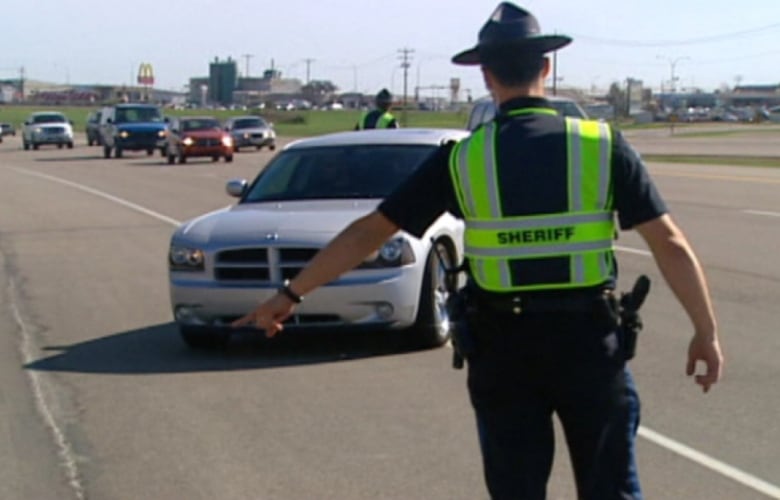New legislation aimed at creating an Alberta-only policing agency of sheriffs is sparking optimism for some community leaders, and furrowed brows for others.
If passed, Bill 11 would see sheriffs taking on more responsibilities and working alongside RCMP officers.
The province said the change would improve its ability to respond to communities’ requests for additional law enforcement.
Public Safety Minister Mike Ellis introduced the bill on Wednesday, citing long emergency wait times and RCMP staffing shortages as motivation for change.
“The RCMP just do not have enough human beings to police Canada, regardless of the amount of money that we give them,” said Ellis. “I can’t wait for them to just continue to try to figure stuff out.”
Paul McLaughlin, the reeve of Ponoka County and president of the Rural Municipalities of Alberta, says he’s “cautiously optimistic” the legislation would bring needed improvements to policing coverage for small communities.
“We do have some concerns in details, but we hope that this will proceed down the path to make communities safer,” said McLaughlin.
The police force would be governed by a civilian oversight board, a role similar to municipal police commissions.
McLaughlin said he’s waiting for clarity on how sheriffs would be deployed in small-town Alberta, but added rural parts of the province aren’t getting their money’s worth under the current policing model.
“I pay more than I’ve ever paid and I have no flexibility,” he said. “That money goes into the big pot and never addresses the local needs.”

Alberta’s Union of Provincial Employees, which represents sheriffs, said it found out about the plan for a provincial policing service 30 minutes before it was announced publicly.
“There was no consultation done with our members … We have a lot of questions that we don’t anticipate getting answers for anytime soon,” said union vice-president Bobby-Joe Borodey.
Sheriffs in Alberta are responsible for transporting inmates, enforcing wildlife conservation laws, and patrolling highways.
They have recently seen their work expanded to include fugitive apprehension, impaired driving and distracted driving cases, and helping police keep order in downtown Edmonton and Calgary.
Borodey said sheriffs will need hefty raises and more training, depending on the extra responsibility they’re asked to shoulder.
“It’s … just a climate of unknown, a climate of anxiety,” she said.
“The longer that we don’t have answers to these questions, then we anticipate that the stress level will go up in a job that is just inherently stressful already.”
The National Police Federation, the union representing 20,000 Mounties, said it was “deeply concerned and perplexed” that Alberta was laying the groundwork for a new independent police agency.
It also said its Alberta members are caught in a politicized debate on policing.
Community leaders want more information
Mountain View County Reeve Angela Aalbers said her county council has yet to discuss the bill, but she supports retaining RCMP policing.
“Our council feels like we … do not have enough information at this point in time from the province to support any kind of an alternative policing method.”
Aalbers said she’s concerned an alternative system could mean additional costs for Mountain View County, which already pays more than $1 million per year for policing.
Peter Brown, the mayor of Airdrie, said he supports the bill and expects the province to clearly articulate a coverage plan over the coming months.
“We’re augmenting the services that we already have … When that happens it’s usually really good.”
Brooks Mayor John Petrie said he’s still evaluating the bill and doesn’t have enough information to predict local impacts.
“What does it mean for the city of Brooks?” he asked. “What does it mean for rural municipalities? What are the sheriffs going to do? What power do they have?
“There’s a lot of questions there on exactly what they can do.”
No money was set aside in this year’s budget to create a provincial policing agency. The provincial government has not provided a timeline.



